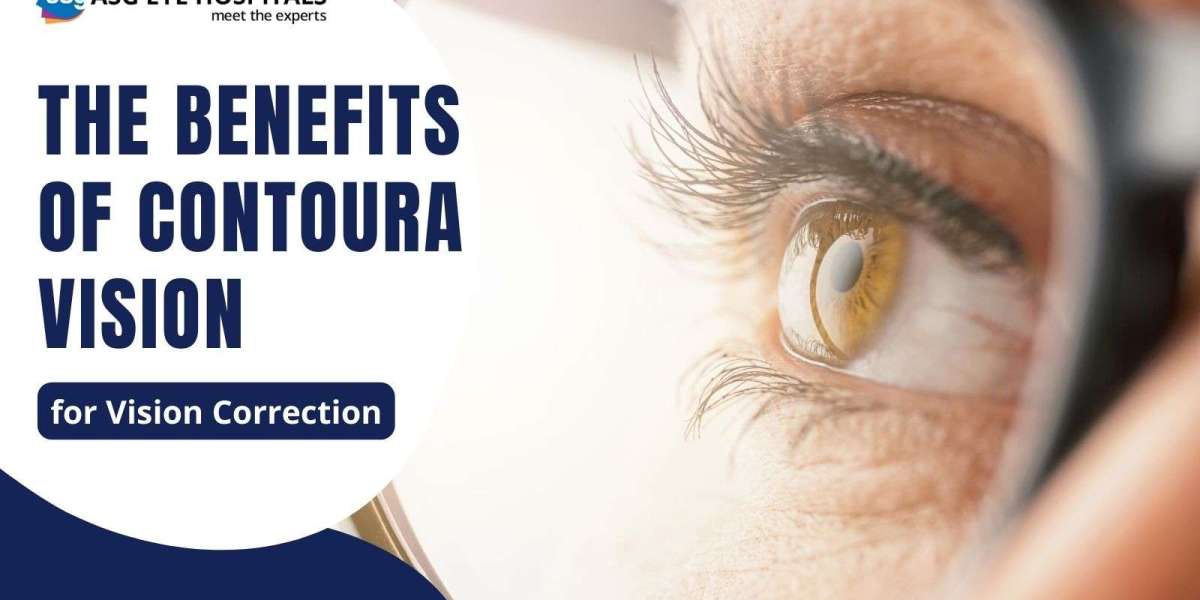In the ever-evolving field of vision correction, Contoura Vision has emerged as a cutting-edge technology that's revolutionizing the way we approach laser eye surgery. This advanced form of LASIK offers patients a level of customization and precision that was previously unattainable. In this comprehensive guide, we'll explore the ins and outs of contoura vision eye surgery, helping you understand if this innovative procedure might be the right choice for your vision needs.
What is Contoura Vision Eye Surgery?
Contoura Vision, also known as topography-guided LASIK, is an advanced form of laser vision correction that goes beyond traditional LASIK. This state-of-the-art procedure uses detailed mapping of the cornea to create a personalized treatment plan for each patient. By addressing even the minutest irregularities in the cornea's surface, contoura vision eye surgery can potentially provide sharper, clearer vision than standard LASIK procedures.
How Contoura Vision Differs from Traditional LASIK
While both Contoura Vision and traditional LASIK aim to correct refractive errors, there are several key differences:
- Personalization: Contoura Vision creates a unique treatment plan for each eye based on its specific topography.
- Precision: The procedure can correct microscopic irregularities in the cornea that standard LASIK might miss.
- Range of Correction: Contoura Vision can potentially address a wider range of vision problems, including some higher-order aberrations.
- Visual Outcomes: Many patients report sharper vision and reduced glare compared to traditional LASIK results.
The Science Behind Contoura Vision
Contoura vision eye surgery uses advanced imaging technology to create a detailed map of the cornea's surface. This map includes over 22,000 unique data points, allowing for an unprecedented level of customization. The procedure then uses this information to guide the laser treatment, addressing not just the patient's refractive error, but also the unique contours of their cornea.
Who is a Good Candidate for Contoura Vision?
Contoura Vision can be an excellent option for many individuals seeking vision correction. Ideal candidates typically:
- Are at least 18 years old
- Have a stable vision prescription for at least a year
- Have myopia (nearsightedness) or astigmatism
- Have adequate corneal thickness
- Are in good overall health
- Have realistic expectations about the outcome
It's worth noting that Contoura Vision is particularly beneficial for patients with irregular corneas or those who haven't achieved optimal results with traditional LASIK.
The Contoura Vision Procedure: Step by Step
Pre-Surgery Consultation
Before undergoing contoura vision eye surgery, you'll have a comprehensive eye exam. Your surgeon will use advanced imaging technology to create a detailed map of your cornea and determine if you're a suitable candidate for the procedure.
The Day of Surgery
- Preparation: Your eyes will be numbed with anesthetic drops, and you may receive a mild sedative to help you relax.
- Corneal Mapping: The surgeon will use the Contoura Vision system to create a detailed topographic map of your cornea.
- Flap Creation: A thin flap is created in the cornea, similar to traditional LASIK.
- Laser Treatment: The excimer laser, guided by the topographic map, reshapes the cornea according to your personalized treatment plan.
- Flap Replacement: The corneal flap is carefully repositioned.
The entire contoura vision eye surgery procedure typically takes about 15-20 minutes per eye.
Post-Surgery Recovery
Most patients experience improved vision within 24 hours of the procedure. You'll need to attend follow-up appointments to monitor your healing progress. Full recovery and stabilization of vision can take up to six months.
Benefits of Contoura Vision Eye Surgery
- Enhanced Visual Acuity: Many patients report sharper, clearer vision compared to traditional LASIK outcomes.
- Reduced Glare and Halos: The procedure can potentially reduce visual disturbances like glare and halos, especially at night.
- Highly Personalized Treatment: Each procedure is tailored to the unique topography of the patient's cornea.
- Potential for Better Contrast Sensitivity: Some patients experience improved contrast sensitivity following the procedure.
- Addresses Corneal Irregularities: Contoura Vision can correct minor corneal irregularities that might affect vision quality.
Potential Risks and Considerations
While contoura vision eye surgery is generally safe and effective, like any surgical procedure, it carries some risks:
- Dry Eyes: Some patients may experience temporary or persistent dry eye symptoms.
- Over or Under Correction: In some cases, additional treatments may be needed to achieve the desired vision correction.
- Infection: Although rare, there's a small risk of eye infection.
- Flap Complications: As with traditional LASIK, there's a slight risk of complications related to the corneal flap.
It's crucial to discuss these potential risks with your eye surgeon during your consultation.
Cost Considerations for Contoura Vision
Contoura vision eye surgery typically costs more than traditional LASIK due to the advanced technology and personalized treatment involved. While it's a significant investment, many patients find the potential for superior visual outcomes justifies the additional cost. Some points to consider:
- Insurance typically doesn't cover Contoura Vision as it's considered an elective procedure.
- Many clinics offer financing options to make the procedure more accessible.
- When comparing costs, consider the potential for improved visual outcomes and quality of life.
Preparing for Contoura Vision Surgery
If you're considering contoura vision eye surgery, here are some steps to prepare:
- Research: Learn as much as you can about the procedure and its outcomes.
- Choose a Surgeon: Select an experienced ophthalmologist who specializes in Contoura Vision.
- Initial Consultation: Schedule a comprehensive eye exam and consultation to determine if you're a good candidate.
- Ask Questions: Don't hesitate to ask your surgeon about their experience, success rates, and any concerns you may have.
- Follow Pre-Op Instructions: Your surgeon will provide specific instructions to follow in the days leading up to your surgery.
Conclusion
Contoura vision eye surgery represents a significant advancement in the field of vision correction. By offering a highly personalized treatment based on the unique topography of each patient's cornea, it has the potential to provide superior visual outcomes compared to traditional LASIK.
While it may not be suitable for everyone, many patients find that the benefits of Contoura Vision - including potentially sharper vision and reduced visual disturbances - make it an attractive option for vision correction. As with any medical procedure, it's crucial to thoroughly research your options and consult with experienced professionals before making a decision.
Remember, your vision is precious, and choosing the right procedure for your eyes is a decision that will impact your life for years to come. With the right information and guidance, you can make an informed decision about whether contoura vision eye surgery is the best choice for your vision needs.







